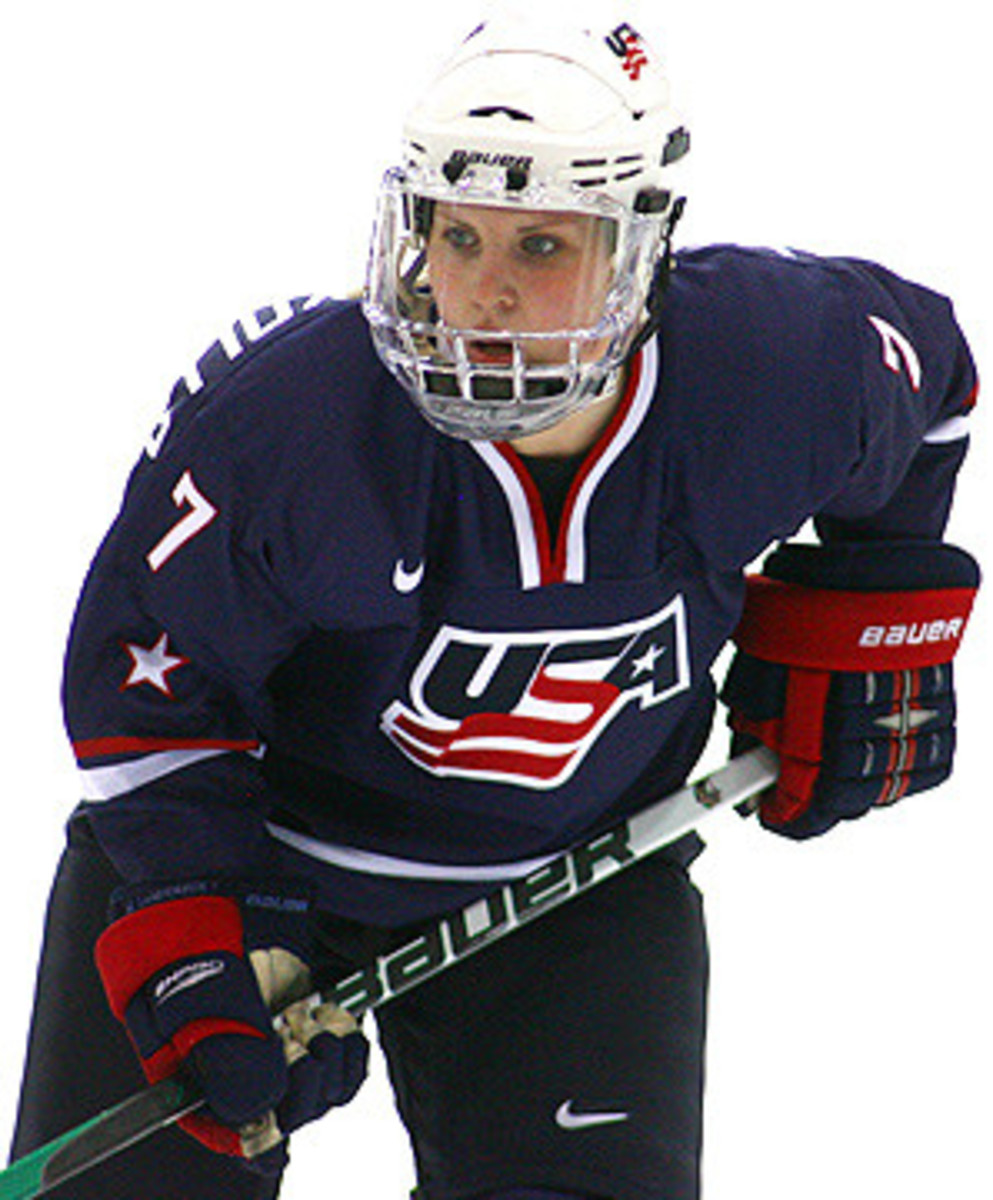Women's ice hockey at risk if global competition doesn't increase
The news is both good and bad. On the one hand, the strength of the North American teams and the supporting programs that act as feeder systems is not in doubt. On the other hand, the lack of parity in the women's game that has existed for two decades has rendered nearly every game other than a U.S.-Canada showdown as an afterthought.
Since 1990, the IIHF, the women's ice hockey international governing body, has held 13 world ice hockey championships for women. Canada has won nine gold medals and the U.S. has won the remaining four. More significantly, the two powerhouse teams have met in each of the 13 final games. Finland, traditionally the world's third-best team, has won ten bronze medals. Sweden has two and Russia one. China was briefly competitive on the world scene, finishing fourth in 1994 and 1997. Switzerland was fourth in 2008. Otherwise, nobody else has even reached the final four.
The title count at the Olympics stands with the last three gold medals in Canadian hands after the U.S. women won the first one in 1998. The only blip on the screen of predictability took place at the Turin Games in 2006, when the Swedes upset the U.S. team in the semifinals to snare a silver medal. In all, that makes 17 major world tournaments with the same two nations meeting for the final 16 times.
This sort of two-team domination is simply bad for the long term viability of women's ice hockey. The sport is dangerously extending its growing-pains period into an overtime it cannot sustain if it wants to remain on the Olympic program.
At the World Hockey Summit in Toronto in 2010, Canadian hockey star Hayley Wickenheiser gave a presentation about the state of the women's game; it included footage spanning the globe and 20 years of development, clearly showing the evolution of sophisticated play. The presentation included footage of women in northern India being scolded by men for trying to play a game that was, in their eyes, simply not intended for women. Wickenheiser points to the $2 million that the top four federations have kicked in to aid with coaching, resources and development in countries ranked 5-12 on the international scene.
That kind of cooperation is rare and certainly good for the game. Yet women's hockey still faces some of the criticism for its lack of equality that ultimately helped take softball of the Olympic program. Simply, there was a very clear ranking with the U.S. team at the top and Japan, China, Australia and Canada trailing with nobody else making enough headway to create any potential for parity. Granted there were issues with baseball that allowed IOC members to dump both sports, but the lack of competitiveness didn't help softball.
Hockey also has an advantage that softball didn't. With some anti-U.S. sentiment swirling around international sports circles, Don Porter, an American, was the head of the International Softball Federation during its Olympic days. The IIHF is run by Rene Fasel, an influential IOC member from Switzerland. If he wants to keep women's hockey afloat -- and there are some who feel he doesn't push hard enough -- he can, since he carries more clout than Porter did among the largely Eurocentric IOC membership.
Wickenheiser still has hopes for the dawning of a women's pro league that can sustain itself for a number of years, but that would only involve North American teams and do little to solve the problem of global imbalance. When she approached Vladislav Tretiak, the Russian goaltending legend and president of the sport's national federation in his country, to ask why the Russians could not create a hockey league in a place that seems to have sports leagues for everything, he shrugged and said that with only 300 registered members, the federation was not going to commit more money to support a league. Wickenheiser told him the numbers would grow if the league started and the discussion never progressed beyond the chicken-and-egg stage.
Live coverage of the gold-medal game this weekend will be shown on Universal Sports in the States and TSN in Canada, but even in Vermont, itself, fans will not be able to see it on a major U.S. network. The IIHF website will have highlight packages on its site, and there will be live coverage in the Scandinavian countries when their national teams are playing. A U.S.-Canada final, for instance, would only be available on streaming video in Sweden and Finland. The remarks at the summit from Fasel, himself, speak to the tenuous platform keeping the game on the Olympic schedule: "We are very excited about the women's game," he said, "but eventually what's in your garden has to grow and in some places the seeds are still making their way."





